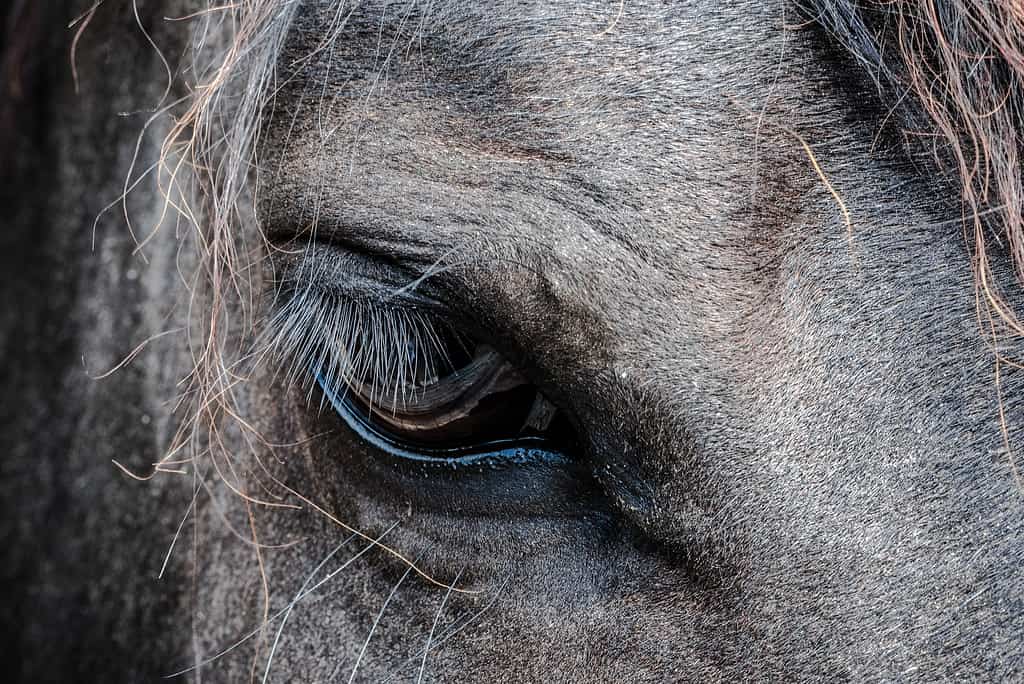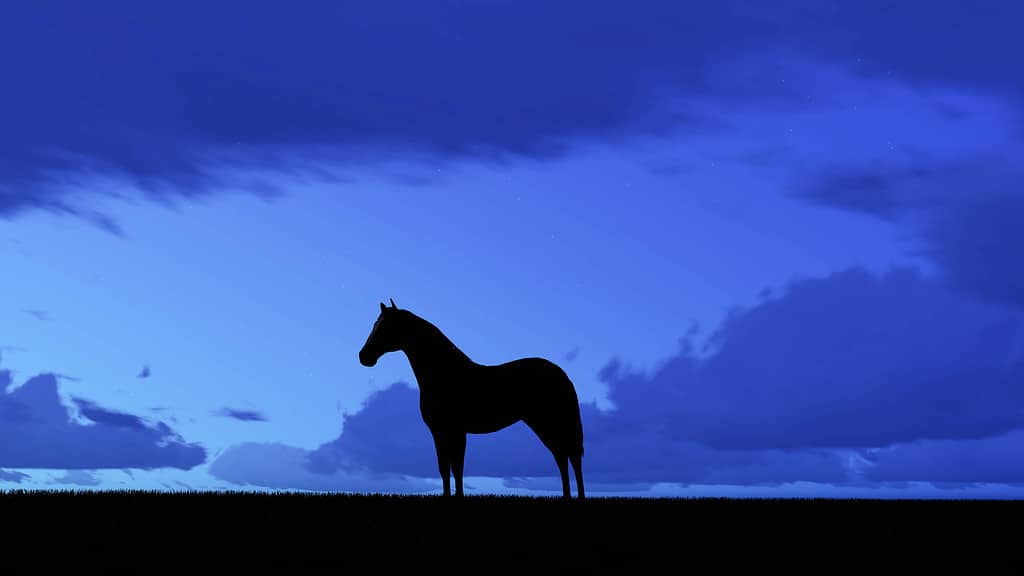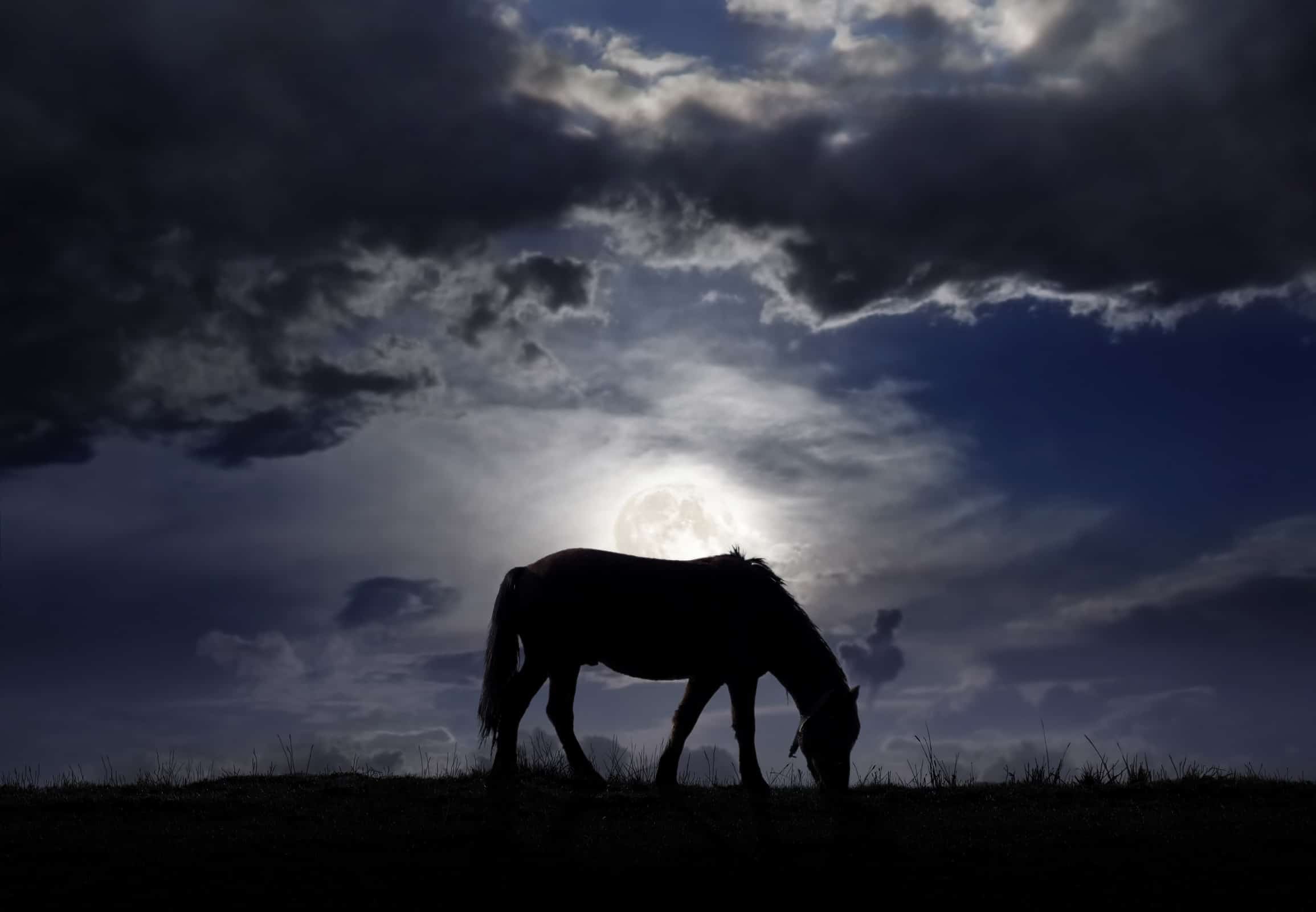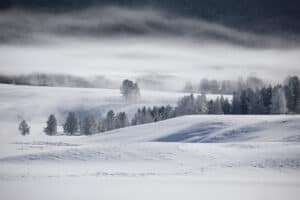Horses are some of the best companions any person could have, but it can be tricky to know how to care for them. Like humans, horses can develop optical disorders that must be cared for properly to avoid lifelong issues. Though unlike humans, animals have an uncanny way of getting around on a pitch-black night. Can horses see in the dark? Let’s find out!
A Horse’s Vision

A horse’s pupil is rectangular, which helps increase their night vision.
In many ways, a horse’s vision is different from our own. Most of that stems from horses being prey animals that must be effective at scanning their environment for advancing predators at any given time. Humans are not prey animals, and thus, our eyes are forward-facing since it is more important for us to pick out small details than it is for us to see all around us. On a horse, their eye placement is on the sides of their head. This enables them to see on the right and left at the same time, whereas we only have our peripheral vision that is not focused as well as a horse.
One feature that horses have that humans don’t is the knobby structure that sticks out from the top of their iris, called a corpora nigra. The corpora nigra acts as sunglasses for the horse due to its antiglare properties. It’s safe to say that in very bright sunlight with a heavy glare, like on icy snow on a bright and sunny day, the horse can see as well as you or better with sunglasses on. The vision strength of a horse is 20/30 to 20/60, whereas humans may be 20/20 only if they have perfect clarity and sharpness in their vision. There are numerous variations to humans’ vision that can alter their ability to see.
Can Horses See in the Dark?

How well can you see when standing in a field after dark?
©Lasha Kilasonia/iStock via Getty Images
Horses see well in the dark, just not in complete darkness. In fact, they see the same or slightly worse than your average human does when going from light to dark conditions, which is a contributing factor to nervous behavior at night or when going from the bright, sunny pasture to a semi-dark barn. Our eyes take roughly 10 – 15 minutes to adjust fully to the change from light to dark. A horse’s eyes take slightly longer to adjust. When you shine a flashlight on your horse during a night check, it causes them to start over when adjusting to the darkness.
Behind a horse’s retina lies a layer of tissue called the tapetum lucidum. The tapetum lucidum is reflective, causing a horse’s eyes to reflect light at night. This is to their advantage and helps draw in any light, which helps them see in the dark. “At night, the horse exhibits excellent scotopic vision not only for stimulus shapes but also for navigation within a very dark confined environment (Hanggi & Ingersoll, 2009).” Humans have poor vision at night compared to horses. However, it’s not advised to go night riding or training. Your horse may see better than you in the dark, but it is far from what a nocturnal animal can see. Horses also have a different blind spot than humans, which could also make night riding a bit dangerous.
Thank you for reading! Have some feedback for us? Contact the AZ Animals editorial team.








